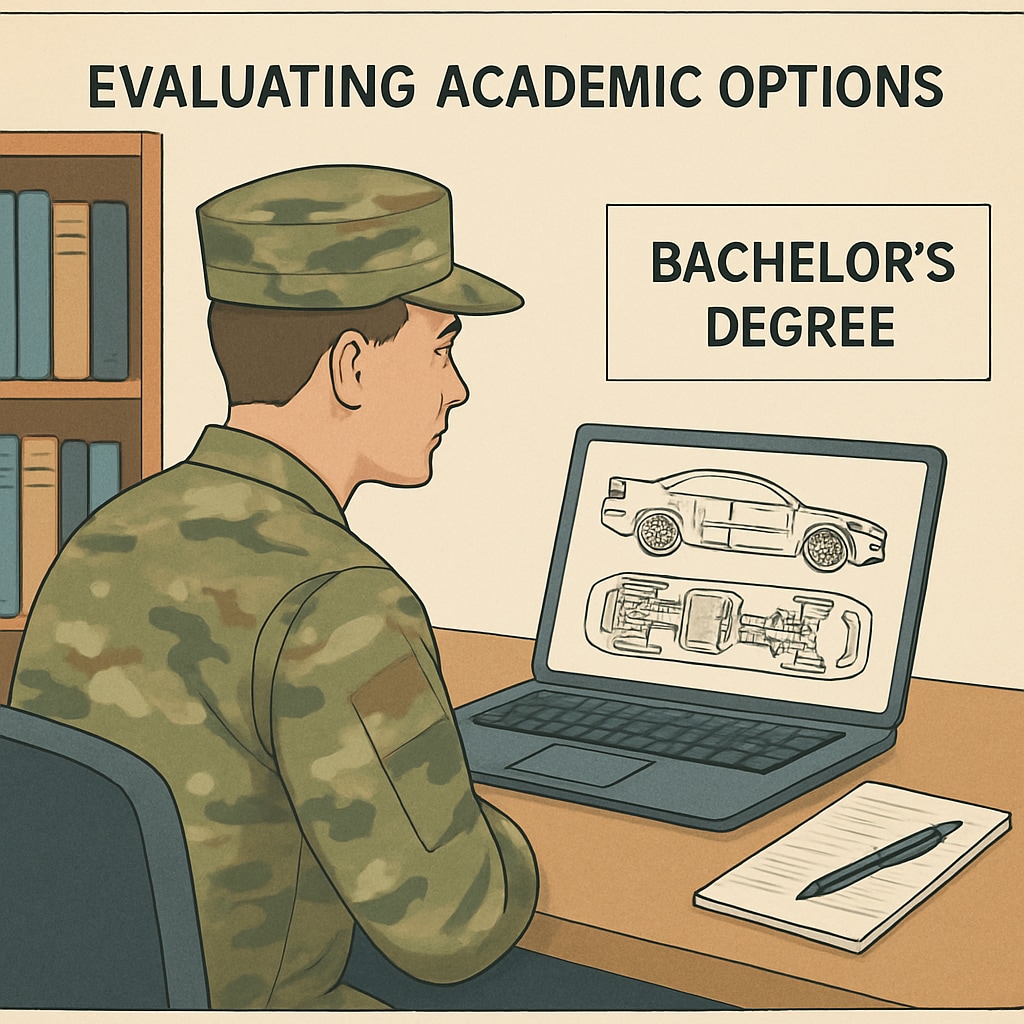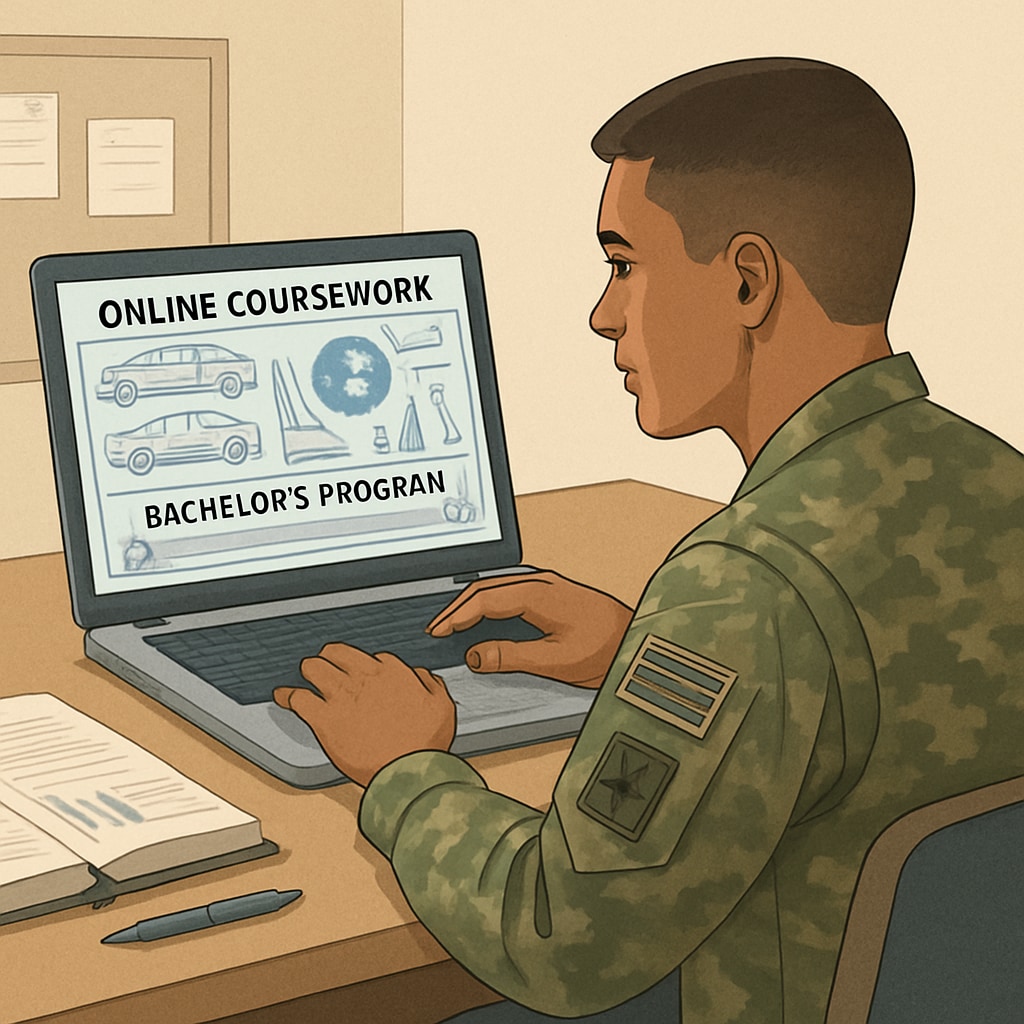Military personnel often face unique challenges when pursuing higher education, particularly when transitioning from a technical associate degree to a bachelor’s degree. For individuals with an associate degree in automotive technology, finding compatible bachelor’s programs, navigating credit transfer processes, and overcoming academic hurdles are essential steps in achieving educational goals. This article provides actionable strategies to make this transition smoother and more effective.
Choosing Compatible Majors for Automotive Technology Graduates
One of the first steps in advancing to a bachelor’s degree is selecting a compatible major. Automotive technology provides a solid foundation in technical skills, mechanical systems, and problem-solving, which can align with several bachelor’s programs. Commonly chosen majors include:
- Mechanical Engineering: A natural progression for those interested in advanced system design and engineering concepts.
- Industrial Technology: Focuses on manufacturing processes and management, ideal for automotive enthusiasts with leadership aspirations.
- Business Administration: For individuals aiming to transition into automotive management or entrepreneurship.
- Automotive Engineering Technology: Specialized programs designed to deepen automotive-specific knowledge and career prospects.
Each major offers unique advantages depending on career goals. For example, someone seeking hands-on roles in design may prefer mechanical engineering, while those aiming for leadership might choose business administration.

Credit Transfer Strategies for Automotive Technology Degrees
Credit transfer is a critical factor in the transition from an associate degree to a bachelor’s degree. Many colleges and universities offer articulation agreements (formal partnerships between institutions) that simplify the transfer of credits. To maximize the number of transferable credits, consider the following:
- Identify Accredited Institutions: Ensure that your associate degree was earned from an accredited institution recognized by your prospective bachelor’s program.
- Review Articulation Agreements: Seek schools with formal agreements for automotive technology degrees to streamline credit acceptance.
- Consult Academic Advisors: Work closely with advisors to identify transferable courses and avoid duplicating coursework.
In addition, standardized exams like CLEP (College-Level Examination Program) may allow students to earn credit for general education requirements, further expediting degree completion.
Overcoming Challenges in the Transition to a Bachelor’s Degree
Transitioning from a technical associate degree to a bachelor’s degree can be challenging, particularly for military personnel balancing service commitments. Common obstacles include adapting to academic expectations, managing time effectively, and accessing financial resources. Here are strategies to address these challenges:
- Academic Preparation: Enroll in preparatory courses or workshops to strengthen skills in areas like mathematics, writing, and critical thinking.
- Time Management: Create a structured schedule that accommodates military duties and coursework, prioritizing tasks effectively.
- Leverage Military Benefits: Utilize resources like the GI Bill or Tuition Assistance to finance your education.
- Online Programs: Consider online bachelor’s programs that offer flexibility for active-duty military personnel.
By employing these strategies, military personnel can overcome barriers and achieve success in their educational journey.

Conclusion: Advancing from Automotive Technology to a Bachelor’s Degree
Pursuing a bachelor’s degree after earning an associate degree in automotive technology is a rewarding pathway for military personnel seeking career advancement. By selecting compatible majors, effectively transferring credits, and addressing transitional challenges, service members can achieve their educational and professional aspirations. Whether aiming for technical expertise or leadership roles, the journey toward a bachelor’s degree opens doors to new opportunities and growth.
For further reading on articulation agreements and credit transfer processes, visit authoritative resources like Articulation Agreement on Wikipedia and GI Bill on Britannica.
Readability guidance: This article uses concise paragraphs, lists, and transition words to ensure clarity. It avoids excessive technical jargon and balances academic content with accessible language.


